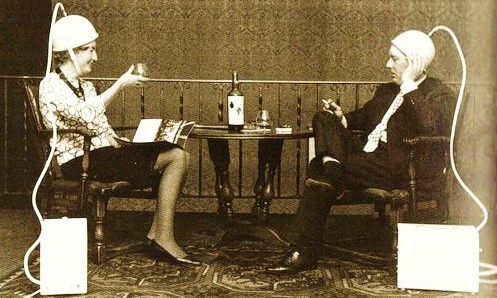Read the fine print. That’s always been good advice, but it’s never been taken seriously when it comes to the Internet, a fast-moving, seemingly ephemeral medium that doesn’t invite slowing down to contemplate. So companies attach a consent form to their sites and apps about cookies. No one reads it, and there’s no legal recourse from having your laptop or smartphone from being plundered for all your personal info. It quietly removes legal recourse from surveillance capitalism.
In an excellent and detailed Locus Magazine essay, Cory Doctorow explains how this oversight, which has already had serious consequences, will snake its way into every corner of our lives once the Internet of Things turns every item into a computer, cars and lamps and soda machines and TV screens. “Notice and consent is an absurd legal fiction,” he writes, acknowledging that it persists despite its ridiculous premise and invasive nature.
An excerpt:
The coming Internet of Things – a terrible name that tells you that its proponents don’t yet know what it’s for, like ‘‘mobile phone’’ or ‘’3D printer’’ – will put networking capability in everything: appliances, lightbulbs, TVs, cars, medical implants, shoes, and garments. Your lightbulb doesn’t need to be able to run apps or route packets, but the tiny, commodity controllers that allow smart lightswitches to control the lights anywhere (and thus allow devices like smart thermostats and phones to integrate with your lights and home security systems) will come with full-fledged computing capability by default, because that will be more cost-efficient that customizing a chip and system for every class of devices. The thing that has driven computers so relentlessly, making them cheaper, more powerful, and more ubiquitous, is their flexibility, their character of general-purposeness. That fact of general-purposeness is inescapable and wonderful and terrible, and it means that the R&D that’s put into making computers faster for aviation benefits the computers in your phone and your heart-monitor (and vice-versa). So everything’s going to have a computer.
You will ‘‘interact’’ with hundreds, then thousands, then tens of thousands of computers every day. The vast majority of these interactions will be glancing, momentary, and with computers that have no way of displaying terms of service, much less presenting you with a button to click to give your ‘‘consent’’ to them. Every TV in the sportsbar where you go for a drink will have cameras and mics and will capture your image and process it through facial-recognition software and capture your speech and pass it back to a server for continuous speech recognition (to check whether you’re giving it a voice command). Every car that drives past you will have cameras that record your likeness and gait, that harvest the unique identifiers of your Bluetooth and other short-range radio devices, and send them to the cloud, where they’ll be merged and aggregated with other data from other sources.
In theory, if notice-and-consent was anything more than a polite fiction, none of this would happen. If notice-and-consent are necessary to make data-collection legal, then without notice-and-consent, the collection is illegal.
But that’s not the realpolitik of this stuff: the reality is that when every car has more sensors than a Google Streetview car, when every TV comes with a camera to let you control it with gestures, when every medical implant collects telemetry that is collected by a ‘‘services’’ business and sold to insurers and pharma companies, the argument will go, ‘‘All this stuff is both good and necessary – you can’t hold back progress!’’•
Tags: Cory Doctorow

